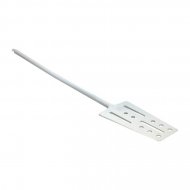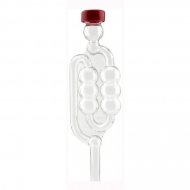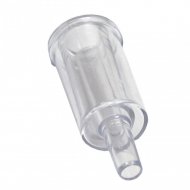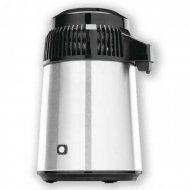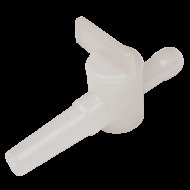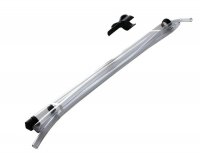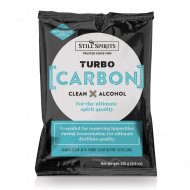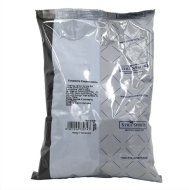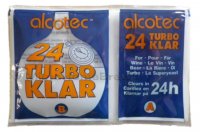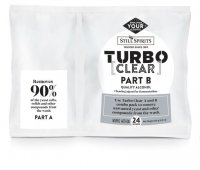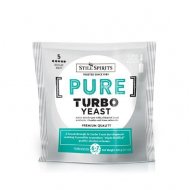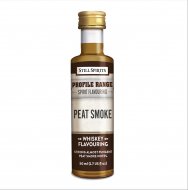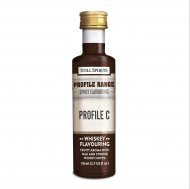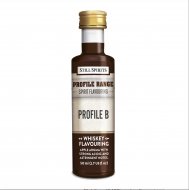Sign up to the Brew Mart newsletter for the latest news, offers & more
How to Make Spirits
Making Spirits
If you are in a location where homebrew spirits are legal and are considering making your spirits, here are some general guidelines to remember. Please consult local laws and regulations before attempting to distil alcohol at home.
If you have any doubts about distilling in the UK, here is the link for you to read https://www.gov.uk/guidance/spirits-duty
Naturally, fermented alcohol is, however, permitted if it is for your use.
BELOW ARE ESSENTIAL STEPS FOR HOME BREWING SPIRITS:
- Instructions from Still Spirits
- Still Spirits Pure Turbo Distilling Yeast Instructions
- Best sugar for brewing spirits
- How to use a homebrew Syphon | Siphon
- Racking Off
- The meaning of Fermentation | Fermenting
- How To Make Rum At Home
- How do you make a whisky at home
- How to make Vodka
You can use naturally fermented alcohol to make spirits and liqueurs using special yeasts which are alcohol tolerant, and you can achieve spirits of 20% ABV.
Brew Mart has all the essences, spirit-making kits, botanicals and equipment for distilling alcohol.
Our stock includes many varieties of whiskey, rum, gin, brandy, and Vodka, enabling any brewer to produce spirits or liqueurs for themselves at a fraction of what a commercial bottle in the high street would cost.
Distilling Spirit - A Guide for Beginners
What is the distillation process?
Home distilling spirits and liqueurs is easy, and you can also use most of the equipment needed when brewing wine, beer or cider.
As with all home brewing, the mantra is cleanliness. All the distilling equipment you use should be clean and sterilised, as bacteria can spoil your brew.
Even temperature control is also essential as significant fluctuations can be harmful. If you find this is a problem, there are different kinds of homebrew heaters available at a very reasonable cost to solve this problem, and they will ensure you have a good mash. Making your spirits can be fun and rewarding as there are good savings to be made. We recommend the mini distillery kit for anyone who has not made Spirits. This contains all the necessary equipment, products, and helpful instructions at a very reasonable price.
ESSENTIAL STEPS FOR HOME BREWING SPIRITS: Gather Equipment:
Equipment
- 2 x 25L Fermentation bucket
- 1 x 25L Bucket lid with hole and grommet
- 1 x 25L Solid bucket lid
- A long handle paddle
- Airlock to prevent contamination.
- Yeast suitable for distillation
- Distillation apparatus (Air Still)
- Thermometer
- A Spirit Hydrometer (Range 70-100% ABV)
- A beer and wine hydrometer to measure the alcohol content
- A syphon
- A brewing heat pad
BREWING SUPPLIES NEEDED
7 x 1 Kilo bags of brewing sugar
1 x Turbo Carbon
1 x Pure turbo yeast
1 x Turbo Clear
A selection of your choice of Liqueur or Spirit Flavourings
Brewing Supplies
- FERMENTATION ( Making your wash)
- Using the 25L sterilised bucket, fill with 21 litres of hot water (30 C), add 7 kilos of brewing sugar, and stir until dissolved.
- Next, add the turbo yeast and stir well. Lastly, add the turbo carbon, taking care not to spill as the name suggests; this is dark and can stain.
- Attach the lid with a hole and grommet plus airlock and allow to ferment. ( The yeast will turn the sugar into alcohol )
- The fermentation process takes, on average, seven days, and the bucket should be kept at room temperature 18 C to 24 C.
- A brewing heating pad is handy for keeping a constant temperature.
- Also, take care not to move the fermenting bucket. Not moving the bucket will allow any sediment to settle.
- Once the fermentation has finished, take a reading with the hydrometer to determine the gravity of the liquid, now called a wash. The gravity should read between 980 and 990
- Stir the wash to release any build-up of carbon dioxide.
- Add the Turbo Clear, which has two parts. You should add these one hour apart.
- Leave the wash in a cool place for 24 hours to clear.
- Syphon the wash into the other 25L bucket carefully to avoid disturbing the dark sediment at the bottom. This is known as racking off.
- You now have the clear wash of approximately 24 litres of flavourless alcohol solution, containing between 14% and 20% ABV, depending on the sugar content and yeast used, which is the basis for the distillation process in the clean bucket. Cover with a solid lid ready for use when needed.
2. DISTILLING
- Using the Air Still, place the ceramic boil enhancers inside, plus a capful of distiller conditioner.
- Fill the Air Still with 4 litres of your wash. Take care not to overfill. There is a marker inside the Air Still denoting the 4-litre mark.
- Put the lid on the Air Still, make sure the nozzle is in place, and switch it on.
- Place a 1-litre capacity jug under the spout to catch the distilled liquid. The distillation duration is approximately two hours.
- The Air Still takes about an hour to heat up and boil the wash over the next hour, causing the alcohol to drip into the jug.
- It is good practice to discard the first 100ml in the jug as the head contains methane, which is not drinkable.
- The middle part is the potable safe portion. The central part should give you approx 700ml of pure alcohol.
- Try to get only what is necessary, as 700ml is the optimum; the quality will reduce after that.
- Allow the Air Still to cool before opening.
- The alcohol in the jug should be about 60%ABV
- Any wash left in the Air Still should be discarded as the quality of the alcohol reduces and it is not fit for purpose.
- Clean the inside of the Air Still with warm soapy water. DO NOT IMMERSE IN WATER. Take care to wipe the outside.
- The Air Still is now ready to make your next batch.
3. FILTRATION
- Once the distillation is complete, the resultant liquid must be polished using the carbon cartridge to remove impurities.
4. WHAT IS THE DISTILLATION PROCESS OR STRENGTH OF THE SPIRIT
- The distillation process converts the wash (liquid) into vapour, which then, when cooler, turns back into a much stronger liquid, in this case, 60% ABV.
- Alcohol of 60%ABV is not safe to drink. Diluting the distilled alcohol with 50% water will bring the ABV down to 40%. Diluting the alcohol will make it safe for the next stage, which is drinkable.
5. FLAVOURING
- Now is the fun part. You can make as many different spirits and liqueurs as you wish. Still Spirits have a full range of flavours from which you can choose. Each one comes with full instructions on the bottle's label for making your favourite tipple. Some home brew spirits, like gin or flavoured Vodka, can be infused with botanicals or fruits to add flavour. Adding flavouring is usually done after distillation. Sit back and enjoy.
















